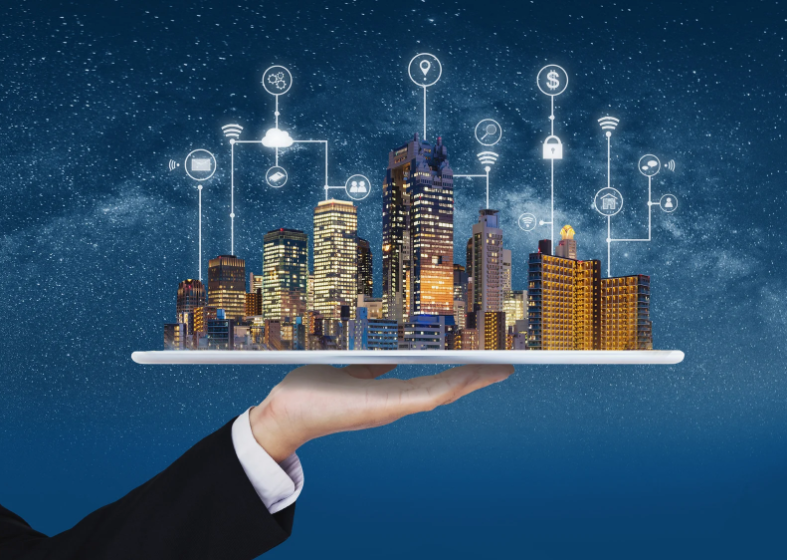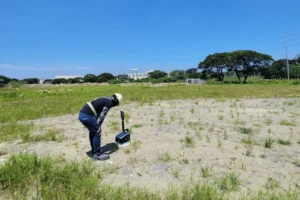Smart buildings are transforming the way urban infrastructure operates, integrating automation, sustainability, and efficiency to create intelligent spaces. In Singapore, where urban development and technological advancements go hand in hand, the adoption of Advanced Building Services is accelerating. These services enhance energy efficiency, security, and occupant comfort while reducing operational costs. As the demand for smart infrastructure grows, Advanced Building Services will play a crucial role in shaping the future of sustainable urban development.
What Are Smart Buildings?
Smart buildings leverage IoT, AI, and automation to create energy-efficient, connected, and responsive environments. By integrating Advanced Building Services, property managers can enhance building performance and optimise resource utilisation. In Singapore, where space is limited, efficient building design with Advanced Building Services ensures optimal use of energy and resources. These buildings use real-time data to manage lighting, HVAC, and security, leading to improved occupant experiences and significant cost savings.
The Role of Advanced Building Services in Smart Buildings
The integration of Advanced Building Services within smart buildings allows for seamless operations, enhancing efficiency and sustainability. Key aspects of Advanced Building Services include:
- Energy Management Systems: Smart buildings use intelligent energy systems to track and optimise consumption, reducing waste and improving efficiency.
- Smart HVAC Systems: These systems adjust temperature settings based on real-time occupancy data, ensuring comfort while minimising energy usage.
- Automated Lighting Controls: Motion sensors and AI-driven lighting systems reduce unnecessary energy consumption.
- Security and Surveillance Solutions: AI-driven surveillance systems enhance security, ensuring building safety in urban centres like Singapore.
- Smart Elevators and Access Controls: Touchless and AI-powered elevator systems optimise movement within buildings, reducing wait times and energy use.
- Waste Management and Water Conservation Technologies: Smart monitoring systems ensure responsible resource utilisation, an essential factor in sustainable urban planning.
Cutting-Edge Technologies Shaping Smart Buildings
The future of smart buildings is driven by emerging technologies that integrate seamlessly with Advanced Building Services. These include:
- Artificial Intelligence (AI) and Machine Learning: AI-driven predictive maintenance reduces downtime and improves efficiency.
- Internet of Things (IoT) Sensors: These sensors enable real-time monitoring, enhancing the performance of Advanced Building Services.
- Building Management Systems (BMS): Centralised control of building operations ensures efficient resource allocation.
- 5G and Edge Computing: Faster data processing and low-latency communication improve building automation and security.
- Digital Twins: Digital simulations of buildings allow for predictive maintenance and energy optimisation.
Singapore is at the forefront of integrating these technologies, with smart districts like Punggol Digital District demonstrating the power of Advanced Building Services in modern infrastructure.
Energy Efficiency and Sustainability in Smart Buildings
Sustainability is a priority for Singapore, and Advanced Building Services play a key role in achieving energy efficiency. By incorporating renewable energy sources, smart buildings reduce their carbon footprint while optimising energy use.
- Renewable Energy Integration: Solar panels, wind turbines, and green roofs contribute to sustainable energy generation.
- Smart Grids and Energy Storage Solutions: Smart grids allow for efficient distribution and storage of renewable energy.
- Green Building Certifications: Buildings equipped with Advanced Building Services qualify for certifications such as LEED and BREEAM, enhancing their value and sustainability.
- Energy-Efficient Smart Buildings in Singapore: Examples include CapitaSpring and the Paya Lebar Quarter, which integrate advanced technologies to optimise resource use.
Enhancing Security and Safety Through Smart Building Services
Safety is a top priority in urban environments, and Advanced Building Services significantly enhance security measures.
- AI-Driven Surveillance and Threat Detection: AI-powered cameras identify threats in real time, ensuring prompt responses.
- Smart Fire Detection and Prevention Systems: Sensors detect smoke and heat anomalies, triggering automatic fire suppression systems.
- Biometric and Keyless Entry Systems: Smart locks and facial recognition systems improve access control and security.
- Cybersecurity Challenges and Solutions: With increasing connectivity, cybersecurity measures ensure the protection of data and building operations.
Singapore’s smart buildings prioritise security by integrating Advanced Building Services, ensuring safe environments for residents and businesses.
The Future of Smart Building Services
As technology advances, the role of Advanced Building Services will continue to expand, improving the functionality and efficiency of smart buildings. Key trends include:
- AI and Automation in Property Management: AI-driven solutions streamline operations, improving tenant experiences.
- Integration with Smart Cities: Smart buildings will connect with broader smart city initiatives, enhancing urban living in Singapore.
- Improved Occupant Experience: Personalised climate control, AI-driven maintenance, and smart lighting create comfortable environments.
- Sustainability Innovations: Net-zero buildings will leverage cutting-edge Advanced Building Services to achieve energy neutrality.
Challenges and Considerations for Smart Building Adoption
Despite the numerous benefits, integrating Advanced Building Services into smart buildings comes with challenges:
- High Initial Investment: The cost of implementing smart infrastructure can be significant, but long-term savings justify the investment.
- Integration with Legacy Systems: Older buildings require substantial upgrades to accommodate Advanced Building Services.
- Data Privacy and Security Risks: As smart buildings rely on data collection, stringent cybersecurity measures must be in place.
- Government Regulations and Compliance: Adhering to regulations is crucial, especially in tech-forward regions like Singapore.
Overcoming these challenges will be key to the widespread adoption of Advanced Building Services in future smart buildings.
Takeaway
The future of urban infrastructure lies in smart buildings, with Advanced Building Services at the core of this transformation. Singapore is leading the way in integrating technology-driven solutions for energy efficiency, security, and occupant comfort. As AI, IoT, and automation continue to evolve, smart buildings will redefine the way people interact with urban spaces. Investing in Advanced Building Services today will ensure a more sustainable, secure, and efficient future for cities worldwide.







